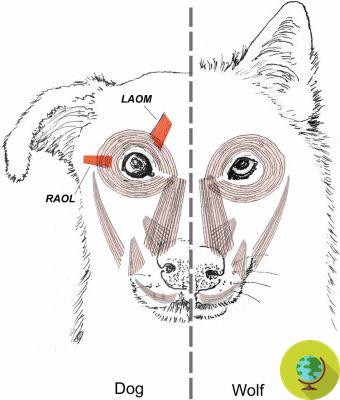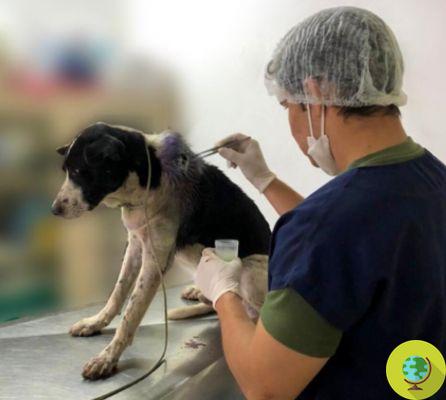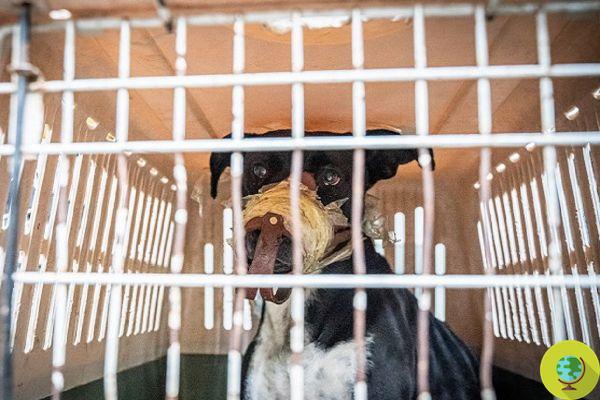
Is the vegan diet suitable for dogs? It has been discussed on several occasions but now a new peer-reviewed analysis, which involved 2500 pets, claims that it is not only adequate but would even be healthier, provided it is nutritionally correct (therefore do-it-yourself is prohibited)
A new study, published in Plos One, suggests that the vegan diet is healthier and safer for dogs than traditional meat based one. The pets that follow her, in fact, visit the vet less frequently and require fewer medications.
To come to affirm this, the research, conducted by a team from the University of Winchester in the United Kingdom, monitored the diet and health of over 2500 dogs over the course of a year (via questionnaires completed by their owners). Of these, just over half followed conventional meat-based diets, a third were fed raw meat and 13% were fed a vegan diet.
It is not that unusual for some owners to offer their dogs a vegan diet. A recent survey conducted in the UK suggests that 1 in 4 owners who had dogs (the survey also covered cats) bought vegan dog food at least once and 45% of people who have dogs said they were interested in vegan food for your pet, as long as it is healthy and affordable.
But going back to the new study, animal welfare was assessed using 7 general health-related parameters, including the number of visits to the vet and the presence of 22 common diseases. The aim was precisely to find out how the dogs were in relation to the diet they followed.
The results
The results of this study, which although small is the largest conducted to date on this topic, show that the vegan diet is better as long as it is nutritionally complete, and therefore not improvised (we add).
To give a few examples, the researchers found that nearly half of dogs fed conventional diets required drugs (albeit not routinely) while only a third of "vegan" dogs needed them.
Additionally, about 17 percent of dogs following conventional diets had four or more vet visits over the course of a year, compared with 9 percent of those on vegan diets and 8 percent of those on raw meat diets.
The dogs that had suffered from health problems during the year were 49% of those following the conventional diet, 43% for the raw meat diet and 36% for the vegan diet.
However, the study specifies that some dogs, fed raw meat, were actually healthier than those who followed the vegan diet but this, the authors argue, could also be due to the fact that they were younger animals.
Professor Andrew Knight, author of the study, said:
The raw meat diet appeared to have slightly better health outcomes. But those dogs were significantly younger, which gives them a health advantage. A substantial body of previous studies has also shown that raw meat diets are much more contaminated with pathogenic bacteria and parasites.
So should all dogs go vegan?
This study is undoubtedly interesting, but limited to a small sample of domestic dogs and it certainly cannot be exhaustive of all the specific situations of individual animals.
There is also one important thing to underline. As Professor Knight himself suggests, weight problems are often a key factor that leads to the development of diseases in dogs (and not only):
One of the most common health problems for dogs is being overweight or obese and it is unfortunately common that when we test meat based diets, there are more calories.
Diet is undoubtedly essential but it is certainly not the only important thing to consider if we want our dogs to be healthy (walks are very important, for example).
A correct lifestyle that prevents obesity even in dogs is as important as the diet. The latter it should always be evaluated with the help of a specialist, therefore, rely on your trusted veterinarian also and above all if you intend to change your dog's diet. Doing it yourself in this case can involve serious risks.
The study also, as the authors themselves point out, has limitations and therefore further research is needed to confirm the results. The biggest limitation is that pets and non-dogs fed in a different and specific way were taken as a sample in order to evaluate the health effects of the various diets.
As Justine Shotton, president of the British Veterinary Association said:
There is a lot of research going on in the field of vegan dog diets and this paper adds to the body of evidence supporting its benefits. However, there is currently a lack of solid data mapping the health consequences of feeding a vegan diet to large numbers of dogs over many years, so we can't wait to see more research into whether this can meet the dietary needs of a long-term dog. While we don't recommend it, it's theoretically possible to feed a dog a vegetarian diet, but owners should consult with an experienced veterinarian to avoid dietary deficiencies and associated diseases.
Follow your Telegram | Instagram | Facebook | TikTok | Youtube
Fonti: Plos One / The Guardian
Read also:
- Lewis Hamilton: 'My dog has gone vegan with health issues and is doing better'
- If you notice these 3 symptoms in your dog, they are signs of an "ancestral" deficiency in his diet
- Pet food: are you willing to feed bugs and larvae to your dog or cat to save the climate?
- Vegetarian / vegan dogs and cats?


























